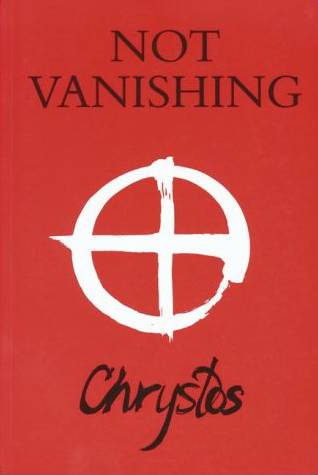Not Vanishing
Chrystos
She tells us about her people the Menominee, whose struggle for sovereignty and landbase was a victory for all of us. She’s a strong and fierce exponent of our endurance. Her poems expose misconceptions others hold of our identity. White guilt gets an extra straightening out but we, Native women, are kept more honest in the presentation of ourselves to our would-be allies or supporters.
She has not become isolated from other Indian women, or Third World Women or political activists. Her readings have been beautiful testimony to the bridging of communities of color and gender. She writes as a Gay American Indian woman, but we are not excluded from the feminist camp which at other times may seem racist, sexist and classisit to us indigenous women. Her book is organized after a reading. She ranges in emotions, for we get serenaded, wooed, cajoled, tickled, and schemed into an ultimate surrender to her enticing poetics.
Table Manners’ is about her annoyance at our having to answer the perpetual questions about being Native American. In ‘White Girl Don’t’ we picture how:
Easy to tie enraged & run off to save somebody… I’ve got El Salvador & South Africa in my throat…
The poem ‘I have not signed a treaty with the U.S. government’ shows her knowledge of what the elders tell us about rights. Chrystos is also compassionate towards the victims of child abuse, AIDS or prostitute murders. She has a zany advocacy for the plight of lettuce victimized by ‘vicious vegetarians.’ Upon return to the res, she endures not only homophobic reactions but generational differences. Her revelation about how one’s family may climb the assimilation ladder while others are left in the dust is a family dynamic not much written about in Indian country.
Not always angry in her writing, Chrystos is a generous legend. Her giveaway poem has been recited by many other poets. It ends this mighty work with her own honest giveaway of self and sisterly stance. Let us all learn from her militancy, because the time is not for claiming to be a ’60s radical but for retracing the steps in our struggle. She allows us to remember the ancestral voices even if we live in the noise and clutter of yuppie dreams. Let her tune up our feminist fiddling. Let’s give her the highest praise: ‘I wish I had said that.’ Marie Annharte Baker, Studies in American Indian Literatures, Series 2, Vol. 2, No. 3 (Fall, 1990)
Check for it on:
Details
| ISBN | 9780889740150 |
| Genre | Literary Collection (Single Author); Native/Indigenous Interest |
| Publication Date | 1988 |
| Publisher | Press Gang Publishers |
| Format | Trade Paperback |
| No. of Pages | 105 |
| Language | English |
| Rating | NotRated |
| Subject | American Poetry – Indian Authors; Fiction; Fiction / General; FICTION / Lesbian |
| BookID | 8997 |
